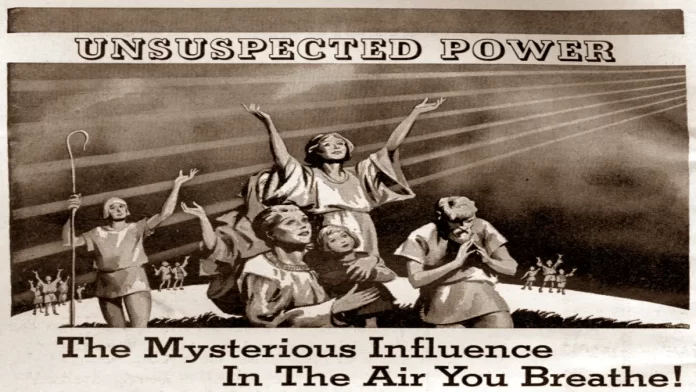Magic has always fascinated humanity. From ancient grimoires to modern pop culture phenomena like Harry Potter and Star Wars, the allure of the mystical seems irresistible. But magic isn’t just a fantastical concept in books and movies. For many, it’s a powerful system rooted in ancient traditions, carrying both promise and peril.
Han Solo’s iconic revelation in The Force Awakens—“It’s all true. All of it.”—strikes a chord with believers in the supernatural. But just as the Jedi have their light side, the Sith embody the dark. And in the real world, magic operates on a similar principle.
Let’s explore how magic works, its hidden dangers, and its increasing relevance in today’s chaotic world.
What Is Magic? Mysticism Meets Science
Magic isn’t just waving wands or chanting spells. Historically, it’s been seen as both an art and a science, blending rituals, symbols, and intentions to influence the world. Ancient Babylon, Medieval Europe, and even 20th-century occultists like Aleister Crowley and Jack Parsons viewed magic as a way to access hidden truths and powers.
- Ancient Roots: Babylonians sought the help of Pazuzu, a demon used to combat other spirits.
- Medieval Grimoires: Books like the Key of Solomon detailed methods to summon and bind demons.
- Modern Revival: Pop culture, chaos magic, and even meme magic have brought mysticism into the digital age.
But with power comes responsibility—and danger.

Dangers of Magic
Magic might be alluring, but it’s not without risks. As rocket scientist Ed Forman once said about the magical texts of his friend Jack Parsons: “It’s all real. It all works. Don’t touch it.”
History is littered with stories of brilliant minds who paid the price for dabbling in magic:
- John Dee: The Elizabethan polymath who fell from grace after his experiments with angelic communication.
- Paracelsus: A pioneer in medicine and alchemy who often walked a fine line between genius and madness.
- Jack Parsons: A brilliant rocket scientist whose fascination with the occult led to his untimely death.
- Aleister Crowley: An influential occultist
These cautionary tales remind us that magic, if mishandled, can be as destructive as it is powerful.
Modern Obsession: Why Magic Is Making a Comeback
In times of chaos, magic tends to resurface. Historically, periods of societal upheaval—from the Crusades to the Great Depression—have coincided with increased interest in mysticism. Today’s magic takes new forms, including:
Why now?
- Pop Culture Influence: Movies like The Lord of the Rings and Harry Potter have made magic feel tangible and accessible.
- Meme Magic: The internet has birthed a new form of mysticism, where symbols and shared beliefs create real-world influence.
- Uncertainty and Chaos: Economic pressures, political unrest, and global crises drive people to seek answers in the mystical.
- Chaos magic
- Social media enchantments
- Digital sigils
While these might seem more approachable than traditional practices, they carry their own risks. The democratization of magical knowledge through the internet doesn’t necessarily make it safer.
Rules of Magic
One of the biggest misconceptions about magic is that it’s a “buffet” where you can pick the parts you like and ignore the rest. But magic operates as a system, much like coding. Remove a key piece, and the whole structure collapses.
- Balance: If angels are real, so are demons. If light exists, so does darkness.
- Consequences: Magic often demands a price, whether you see it as karmic balance or unconscious guilt.
- Respect the Rules: As in programming or science, skipping steps leads to failure—or worse.
The rise of chaos magic, which emphasizes individual belief over structured systems, reflects modern society’s rebellious streak. But ignoring the foundations of magic can lead to unintended consequences.
Fine Line Between Belief and Danger
Skeptics might argue that magic’s power lies solely in suggestion or psychology. Even so, belief itself can be dangerous. Think of the countless lives disrupted by cults, dangerous rituals, or even overzealous positive thinking.
- The Power of Suggestion: Magic works because people believe it does. But belief can also backfire, creating obsessions or fueling paranoia.
- Unintended Consequences: What starts as harmless experimentation can spiral into chaos, as seen in historical occult revivals.
For those truly interested in magic, seeking guidance from an experienced practitioner is crucial. As with any tool, misuse can cause harm.
Magic in the Age of Memes
Today, magic is evolving. Enter meme magic—a modern blend of symbols, intent, and collective belief. From political campaigns to viral trends, the internet has become a battleground for a new kind of magic.
- Sigils in Cyberspace: Ancient magical practices like sigil crafting now find their equivalents in hashtags and memes.
- The Power of Collective Thought: Just as rituals gather power through group participation, viral memes gain influence through shares and likes.
But just like traditional magic, meme magic can be a double-edged sword, capable of creation and destruction.
Positive Thinking
Not all magic involves summoning spirits or crafting sigils. Positive thinking—a cornerstone of the New Thought movement—offers a more accessible and less risky form of magic.
- Napoleon Hill’s Magical Mindset: In Think and Grow Rich, Hill emphasized visualization and belief as tools for success.
- The Power of Affirmations: Speaking goals into existence mirrors magical incantations.
- Balancing Negativity: In a world filled with fear and chaos, positive thinking acts as a counterbalance.
While it may lack the drama of summoning demons, positive thinking can still yield powerful results.
Magic and Chaos
As global uncertainty grows, the allure of magic becomes stronger. But magic thrives in chaos, and with chaos comes danger. Historically, times of turmoil—from the collapse of empires to religious wars—have sparked new magical movements.
Today’s chaotic landscape mirrors these historical patterns. The question is: will this new wave of interest in magic lead to enlightenment or destruction?
Final Thoughts
Magic, whether you see it as a science, an art, or a belief system, is undeniably powerful. But power always comes with responsibility.
- Understand its history and principles.
- Respect its balance between light and dark.
- Seek guidance from experienced practitioners.
Magic is not just a tool; it’s a force. And like any force, it can create—or destroy.
As we navigate this chaotic era, let’s remember the words of Ed Forman: “It’s all real. It all works. Don’t touch it.” Words to live by.

